#google scholar
Text
If you're surrounded by people who call trans people by their deadnames, you're most likely in a hate group. But a possible alternate explanation is that you're in academia. And it's not because that many academics are openly transphobic -- they just don't know that the site they fully trust, Google Scholar, is telling them to do it.
Google Scholar was developed in 2004 and has changed very little since then. It supplanted a lot of hard-to-use library search indices by providing a Google-style interface with a single search box. Now it's the most name-recognized site for searching for almost any paper by almost anyone. One aspect of the design was, authors are just a kind of search term. An author is a cluster of different ways to abbreviate a name, like Firstname Lastname, Firstname M. Lastname, and F Lastname, and you might see different forms in different places, but the underlying name will never change.
This is because Google Scholar was built by, and for, cis men with unchanging Western-style names. The "almost anyone" who you can search for excludes trans people, among a lot of other people it represents poorly. And because Scholar will not change, it should perish.
I fought the goog, and the goog won
I changed my name in research, retroactively. I broke the assumptions of Google Scholar, and Google Scholar hid my papers from search results when it couldn't model what was going on with them. It would particularly suppress search results for my new name, which were just confusing distractors for the results it really wanted to show, for my deadname. If you ask it how to cite me, it will auto-generate you a citation of my deadname.
I fought hard to remove citations of my deadname, replace PDF files, take down papers I couldn't replace, take away all the evidence of my deadname that I possibly could. Not to keep it from the eyes of people, but to keep it out of the Google Scholar model. I partially succeeded in making my new name more searchable, and even got it to show up in the auto-generated citations in some circumstances.
For a fleeting moment, I claimed victory.
But Google Scholar countered by finding my absolute most obscure things that count as publications, ones that I can't kill because they were not really alive in the first place, and bringing them to the top of my search results, so it can use them to keep helpfully directing you to my deadname.
Signing in and claiming papers on an "author page" doesn't help, because author pages are one tiny link in search results that nobody clicks through, because the papers are already right there.
Most trans people quit research rather than deal with this, and even though I found myself with more energy and opportunity to fight for my name than most, I quit research too.
There! We fixed it for cis people
Google knows about this. I raised the issue with them in February 2019. It became an internal bug report in July 2019, which I have never seen, but from what I've heard about it, it quickly went far astray from what I was trying to tell them. "Allies" inside Google came up with extremely dumbass theories of how to represent trans people in a way that fit Google's preconceptions.
I've posted about the problem at various times on social media (mostly Twitter when that was a thing). I tweeted about how Google's name model doesn't even work for cis women, given that many women change their names at some point in their lives. This got some traction and led to an amazingly quick response, along the lines of "oh shit! We fixed it for cis women."
The new feature they added allowed a person (who had claimed papers using a Google account) to link together their multiple names, as long as they were okay with all the names being shown at the top of their search results. The first trans person to try using the feature was extremely surprised and dismayed by the prominence it gave to their deadname, and asked "do you think they talked to even a single trans person about this feature?"
Nobody has ever heard Anurag Acharya, the creator of Google Scholar, say anything about the problem of name changes on his platform, or really anything attributable to him at all. But I know he knows about it.
The one time we got their attention
Google got banned as a sponsor of Queer in AI, partially because of Google Scholar, though if you ask most people now they'll say it's because they profit from AI weapons systems. Which is also a thing. But Google Scholar was enough of a part of the issue that an exec actually got on the phone with non-Googlers about it for the first time.
The exec was Jeff Dean, head of AI, whose organization does not actually include Google Scholar. When pressed on the issue by Queer in AI, he defended Scholar's lack of name changes, saying -- I believe this to be a direct quote -- "we have to ensure accurate information". Calling trans people by their names does not fall under the category of "accurate information" to the latently transphobic Jeff Dean.
In another rare instance of public communication, a couple of painfully assimilationist trans Google FTEs promoted a horrible idea where publishers would have an API for informing Google that someone's name had changed in their archives. That's right, you wouldn't control your own name, dozens of publishers would, all with their own processes ranging from gatekeepy to nonexistent, and you'd have to out yourself and beg to every one of them to press the Here's A Trans Person button. The only good thing about this proposal is that it was so obviously unworkable that they didn't do it.
Aside: If you are a Google full time employee, and you are trans, you are assimilationist. I'm sorry. I know your life circumstances mean you have to be. There used to be non-assimilationists there, and they joined the union and got illegally fired in 2019, or they quit in solidarity with the people who were fired in 2019 or 2021, and that leaves you, keeping your head down and keeping your job. You're still reading this paragraph, and that's amazing, so here's what I need you to know: from your position, you cannot advocate for the needs of trans non-Googlers, unless you allow trans non-Googlers into the conversation.
Contract workers, though, you're cool. You fought for a trans man, working at a Google data center, to stop having to wear his deadname on his badge, and you won.
There is a solution
I know that Google would not invest a lot of development effort into fixing a pet project like Google Scholar (though, again, "we fixed it for cis women" came remarkably quickly). I know that Google is institutionally incapable of letting people control their own identity without being a gatekeeper, that it's just not in the realm of things they dream of.
There is still a solution. It's so easy. It plays to Google's strengths. There's even a business argument for it.
They just need to shut it down.
Google Scholar can have a plot in the Google graveyard next to Hangouts, Picasa, AngularJS, Cardboard, Inbox, Orkut, Knol, and the dearly departed Reader. It will be missed, for a bit, and then real librarians and archivists can get back to doing the job that Google monopolized. They'll know how to do it better this time. The Internet Archive is already doing it, and they let trans people change their names.
I made a site about all this, scholar.hasfailed.us. I haven't been raising the issue enough since the fall of Twitter, and I think it's time that I get back to it.
#google#tech#tech giants#transphobia#trans#lgbt#google scholar#academia#my uploads#my uploads (unjank)
563 notes
·
View notes
Text


WELL DAMN
You know its gotta be a reliable paper when it was apparently authored by the fossil animals themselves
343 notes
·
View notes
Text
when the hyperfixation gets so bad you pull out this bad boy
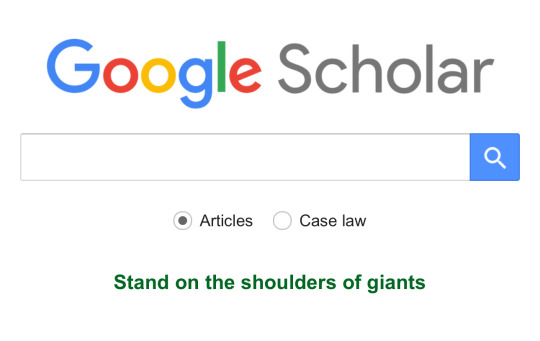
#i be#reading articles#like no other#some of these bitches be peer-reviewed too this is great#yes this is about#disco elysium#maybe a little bit of bioshock?#i’ll tag it anyway#bioshock#bioshock 2#google scholar#google
46 notes
·
View notes
Note
hi sophie! ive been following for a while now, and i have a question- where do you look for all your sources? or rather, how do you find them?
im not very good at spotting credible, reliable and unbiased sources especially if Im searching online, and you also have quite a few older studies and write ups! its really interesting to see all these studies and artifiacts of human culture, and i wanna study it myself!
Most, I find on Google Scholar. And I try to check out the authors and publishers if I can to see their credentials and reputation.
I think most people probably already know this, but if you don't, it's always good to remember that you can search for specific terms with quotations.
If you want to learn about how psychologists use terms like "personality states", searching for this:
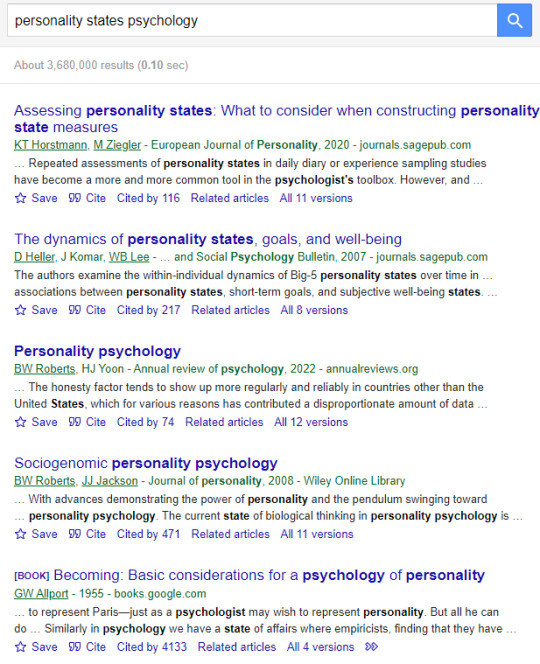
gives poorer results than this:
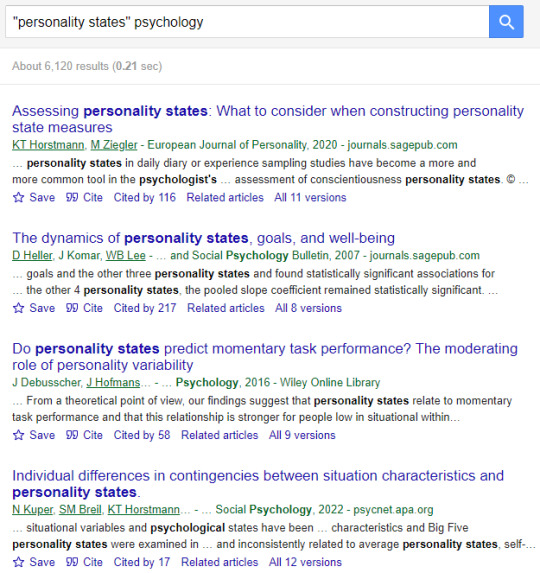
Always use quotation marks to narrow down the subject when applicable.
Others, I find through collections other people have gathered before me. A good way to find sources I found is just to check citations. If you see a paper claim something that they cite a source for, you can check the citations and go back further. And if an article in a citation is paywalled, you can often find it on Sci-Hub by copying and pasting the DOI.
Hope that helps! 😁
#psychology#science#psychiatry#sources#google scholar#google#search#plural#plurality#multiplicity#sysblr#actually plural#actually a system
31 notes
·
View notes
Text
Which search engine is best for academic research? Hint: It's not Wikipedia

PubMed
PubMed is a free resource supporting the search and retrieval of biomedical and life sciences literature with the aim of improving health–both globally and personally.
The PubMed database contains more than 34 million citations and abstracts of biomedical literature. It does not include full-text journal articles; however, links to the full text are often present when available from other sources, such as the publisher's website or PubMed Central (PMC).
Available to the public online since 1996, PubMed was developed and is maintained by the National Center for Biotechnology Information (NCBI), at the U.S. National Library of Medicine (NLM), located at the National Institutes of Health (NIH).
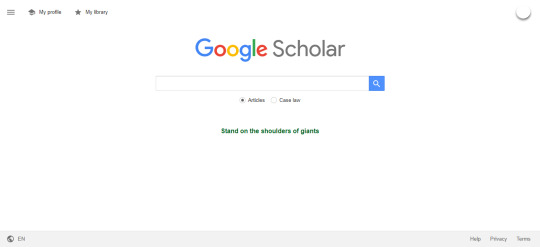
Google Scholar
Google Scholar provides a simple way to broadly search for scholarly literature. From one place, you can search across many disciplines and sources: articles, theses, books, abstracts, and court opinions, from academic publishers, professional societies, online repositories, universities, and other websites. Google Scholar helps you find relevant work across the world of scholarly research.
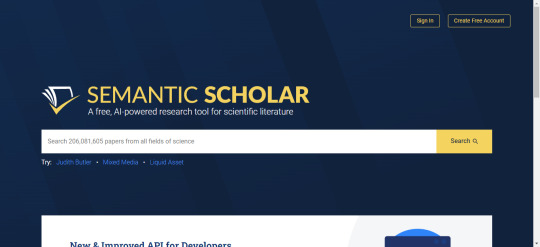
Semantic Scholar
Semantic Scholar provides free, AI-driven search and discovery tools, and open resources for the global research community. With Semantic Scholar, researchers can understand a paper at a glance. Our system extracts meaning and identifies connections from within papers, then surfaces these insights to help Scholars discover and understand research.
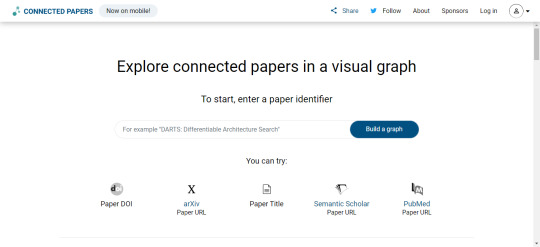
Connected Papers
Connected Papers is a unique, visual tool to help researchers and applied scientists find and explore papers relevant to their field of work.
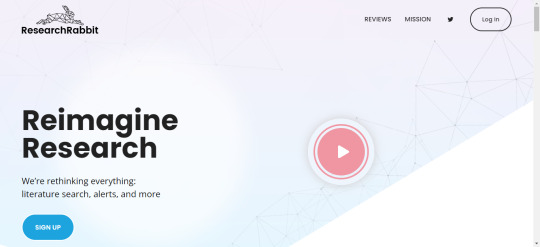
Research Rabbit
Research Rabbit is starting with our Discovery app which unlocks a completely novel way to search for papers and authors, monitor new literature, visualize research landscapes, and collaborate with colleagues.
#pubmed#google scholar#semanticscholar#research rabbit#connected papers#researchers#research paper#research#biotechnology#biotech#science#biology#biochemistry#studyblr#molecularbiology#notes#class notes#students#biotechnology science#useful information#search engines & search marketing#search engine#phd scholar#phd#phd candidate#thesis#university#grad school#phd topics#wikipedia
1K notes
·
View notes
Text
A Fantastic Resource For Finding Information
Good morning everyone! I just wanted to pop in and inform everyone about a fantastic resource anyone can use to find information about nearly any topic that the brain can even think of. I use it constantly for my job as a researcher and it helps me out A LOT. This resource can be used for a job, writing essays, or even just satisfying a person's curiosity on a certain topic they want to learn about!
Google Scholar is an online resource that is free for anyone to use! It was released on November 20th, 2004, and is absolutely FILLED with peer-reviewed online academic journals and books, conference papers, theses and dissertations, preprints, abstracts, technical reports, and other scholarly literature, including court opinions and patents. Whatever you decide to search up, under each link/article/book/etc. will be options to save, cite (For when writing your own essay or article), tell you how many others have citied that specific article, and give you an option to view related articles and any other versions of that exact article. On the left side of the resource, you can specify what exact thing you are looking for by setting a specific range of when the article was posted, if you want to sort the results by relevance or date, what type of article you are looking for, and if you want the article to include patent/citations or not. Underneath that, you can even make an alert for a certain topic so that you will be notified when a new article is posted about that topic.
"But, Jerome, where do I go to find this amazing resource?" I'm glad you asked! You just need to search up, "Google Scholar" into your search bar and it should be the first link to pop up. I have also included a link to it at the bottom of this post, right before the tags. Happy researching!
https://g.co/kgs/UpVwU42
#LITERALLY SO USEFUL#SO EASY TO USE#without this I would not be nearly as good at my job as I am right now#I would spend most of my time at the library without this#but because I have it i can work very well without barely ever having to leave the house#Have fun with your researching!#jrwi suckening#jrwi the suckening#jerome jrwi#jrwi jerome#in character#jrwi#jrwi rp#the suckening#google scholar#google
9 notes
·
View notes
Text
I want to talk about something today. Something very important for younger people and newer people coming out.
Research with legitimate sources, aka scholarly articles and medical journals/studies. Wiki is not a good source, people can change info at any point true or untrue.
We want to look for articles with medical and area professionals clearly placing their name in and on the article, or the most reliable sources are called scholarly articles and medical journals/studies, also some gender affirming clinics lay out a lot of information on their websites, most clinics dont mind answering your questions or concerns via email or phone (they may get back to you at a later date). When looking for information, you want peer reviewed medical information. Google has these features that can help narrow down your search for more accurate results. Using quotes around exact words or phrases is a trick to narrow down to more on topic search results.
Also, use Google Scholar (just type "Google scholar" into the search bar to find only actual medical articles and studies. Even lawsuits.
This is the google search bar for scholarly information below:
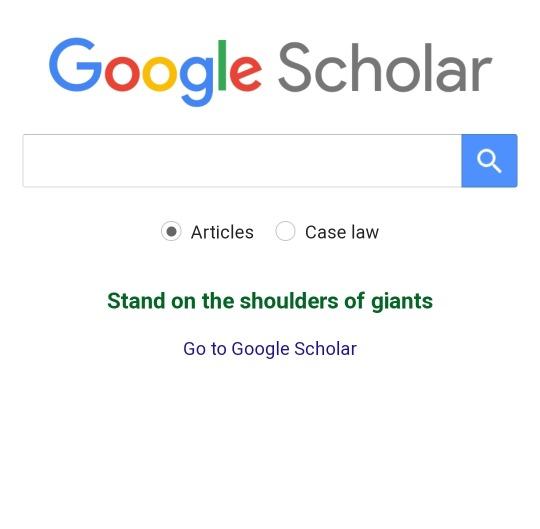
****READ THE ARTICLE FROM START TO FINISH OR AT LEAST THE PART(S) THAT PORTAIN TO YOUR RESEARCH!(some articles can include more than one study)****
Don't only use one source for your information, find as many as you can until you feel confident in the field of medicines and your concolusions about them. Information you use should be verified by several responsibly written articles, journals, and/or studies.
Call surgeons' offices, ask questions.
Research doctors in your area or a doctor you really like, again don't be afraid to call or email clinics!
When it comes to surgery and your body, if you have a bad feeling, any bad gut feelings before they put you under, about the surgeron or their methods, even team. You can back out until you are knocked out. You can say no as soon as you walk into the surgical suite. You worry about you.
Please, when going onto transgender groups (facebook and stuff), that not everyone is being genuine with you. People can be anything or anyone on the internet, behind that screen. I see trans people spreading anti-transtional propaganda (not on purpose), and they don't notice or know better. The negative people tend to pick out their victims early, cling onto someone newer in transitioning or even just joining the group. They probably try getting chummy really fast, getting into a lot of detail very early. They will start bringing up [negative] transitional things when they have nothing to do with the conversation you are having. It's a red flag when you can't talk about anything but "transitioning," and its a sign you need to block if all they say are negative, things. Life happens, but you don't need to drown yourself in negativity. Beware of people on the internet. Their intent is not always good, anyone can lie, anyone can find fake pictures for their profile, anyone can pretend to be someone they are not. Some of us should know that well as trans folk. Some people are even legitimate and are perhaps mad/ unhappy about their results and tend to use way overly dramatic words to describe their results, these people usually aren't telling you the whole truth. People also tend not to want to put any blame on themselves. If you aren't being honest yourself about your results and what and where things went wrong thats not okay. That,or telling someone not to do something that prevents transitioning or calming their dysphoria, that's considered transphobia.
It's important to also know that Facebook, Twitter, etc. are often looked at by employers, so many people will not use their own profiles to be a imaginary person.
Edit: Yes, transgender people can be transphobic as well. Look up Caitlin Jenner and what she's said and tried to do. Let me tell you now, she said transwomen should not be allowed to compete in sporting events, claiming "allowing transwomen to compete destroys women's sports" . So please, if you use that card, put it back in the deck. It's not true, and it's just a wrong blanket statement altogether. There are people who finish their transition and forget they had the rights they want taken away.
I want you to know and it's important to know many end results almost solely rely on the person and how they take care of themselves pre-op and post-op (yes taking care of your body before matters for optimum results). If you are heavier, your body has a harder time healing. This can cause complications and less favorable results because of those complications. I do have a post on being larger and surgical complications that are involved with that. (Here are some links about plus sized risks and general risks: plus size, general risks)
From Dad Shadow: Remember, don't tell anyone online personal information, even if you have been talking for years. Also, do not place yourself (ex. "Im gunna to go to the Starbucks on fifth around the corner from my house." this is especially bad if they may know your partial location) Someone can figure out your identity/location. Don't reveal anything you'd be asked to use as an account recovery question. When I was a younger adult, I saw someone post an image of a girl he met on 'Omegle', saying, "They accidentally got disconnected." Within two hours, everything about this girl was on this thread... from her name, where she was attending school, her personal address, her Facebook. All of it. It was more than one person looking and posting as well. People can be like this... I know you know, but the Dad in me wants to remind you. Browse safely!
I hope you read this and found it helpful everyone. I felt this is a need and it doesn't need post secondary education classes to teach you how to properly find sourced information for reports (same as your knowledge on the subject you are talking about).
P.s keeping your skin elasticity is very important, so mosturize your pecks, let it dry, then put on your binder.
Stay Golden Everyone ✌️ 💙 💜
#transgender#trans ftm#transman#ftm transition#ask me things#phalloplasty#ftm phalloplasty#phalloplasty blog#lgbtq#phallo education#ftm top education#ftm surgery information#how to properly find sourced information#this is how and where you should be looking#internet safety#internet searching#getting correct information#unbiased informational sources#google scholar
19 notes
·
View notes
Text
All I was trying to do was search up if anyone had said grouping friends together was a bad idea.
NOT THIS GOOGLE!!
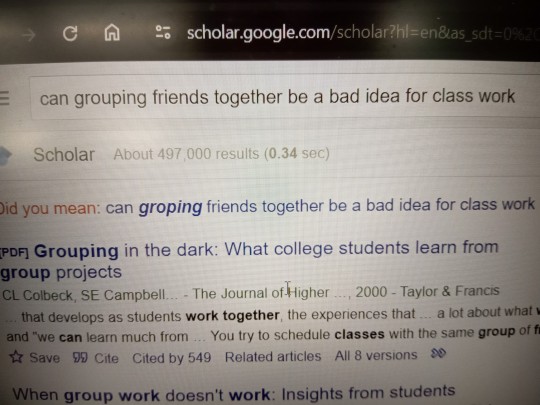
GOOGLE SCHOLAR WHY HAST THOU FORSAKEN MEEE????
I'M TRYING TO FOCUS AND YOU GOT ME DISTRACTED, YOU WERE SUPPOSED TO FIX THE ISSUE NOT MAKE IT WORSE 😭😭
#i actually cant#*giggling*#its so out of left field wtf 😂😭#dead#help 💀💀💀#google#google scholar#assignmentwriting
2 notes
·
View notes
Text
Not bad...
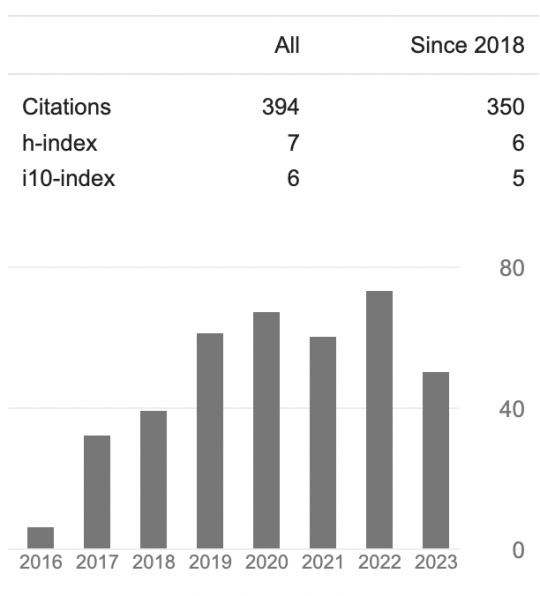
Almost 80 citations of my research articles in the last year... I would say it’s not bad. It eases a bit my feeling of “I don’t know what I am doing here!” that I sometimes have.
#postdoc#research#science#output#research articles#women in science#physics#biophysics#life sciences#chemistry#citations#achievements#impostor syndrome#bright future#google scholar#original content
10 notes
·
View notes
Text
Opened Google scholar to look for paleo papers and I have no memory of what was going through my mind during my last session

4 notes
·
View notes
Text
More google scholar Frankenstein opinions:
I think I mostly just continue to be shocked that the whole theory of women having hysterical fantasies about fucking their dads that Freud made up to cover for the fact that his patients were being sexually abused is becoming increasingly accepted and yet people trot out the “boys sexually desiring their mothers” as legitimate analysis without acknowledging that any sexual abuse could be happening here because no matter how young a male character always has perfect agency.
#frankenstein#victor frankenstein#google scholar#classic literature#gothic literature#analysis of analysis
17 notes
·
View notes
Text
Finding my mom's doctoral essay
We make loads of jokes about boomers' incapability concerning tech, so I'd like to present a new aspect: The moment of bonding when showing your parents something they, too, can love about this new world.
My mom was just reminiscing about her student days, and I suggested we look up her doctoral work. She laughed and said she never published it, we wouldn't find it.
But there it was, first hit on Google Scholar. The quiet happy laugh of pride when she saw how many had cited her and used her work for further studies was... beautiful.
So next time you're loosing an argument against your scoffing dad about the merits of today's tech, try thinking of something he'd love about it. Maybe it's seeing a Cristal clear replay of a tennis match. Maybe it's connecting to other hobbyists on forums.
Yeah, the internet is a scary place. So, instead of giving up on it as a toxic swamp, how about we use the beautiful parts and make it habitable again :)
4 notes
·
View notes
Text
My Tumblr Fandom
I think I finally figured out my Tumblr fandom! I really love scholars and scholarship and spend a lot of time browsing Google Scholar. I especially love historians of all stripes and critical theorists. Also some superstars like Rachel Armstrong, Rosi Braidotti, and Tim Ingold. I'm not a scholar but read a lot of scholarship. So, when I find some scholarship that catches my eye I'll post it here. I'll try to tilt toward open source but I'm sure some restricted access works will make their way into the mix.
0 notes
Note
Quick question how do you tell if a source is reliable or not? I’m trying to look into MADD but not sure where to start
I use Google Scholar to find sources. Then look at the publisher and/or authors.
By the way, a ton of the research on MADD that you'll want to look into was written by Eli Somer, who originally coined the term. If you want to learn more about the disorder, his papers are probably the best places to start.
Here's one where he discussed MADD as a dissociative disorders:
#maladaptive daydreaming#madd#psychology#psychiatry#science#google scholar#academic papers#information#mental health
15 notes
·
View notes
Text
Doktora Eğitimi Nedir? PhD ne zaman olunur? Özel sektörde çalışırken Doktora eğitimi alınabilir mi?
‘Bilgi şüphe yaratır. Ve bu şüphe seni daha fazla bilgi aramaya yöneltir, aç gözlü yapar.” Lao Tzu.
Şimdi yolun başından herkese selam olsun🦋 yeni başlıyorum.
31.01.2023 …
“Aramıza hoş geldin Dr. Ayşem Ece YALÇINKAYA… ” dedikleri gün, bir yandan dünyada meydana gelen felaketler diğer yandan kaybettiğim yakınlarım ve özel sektörün acımasız mesailerine ve tacizine rağmen azimle devam ettiğim,…

View On WordPress
#Article#Ayşem Ece#Book#Dergi#Dergipark#Doctorate#Doctorate thesis#doktora#Doktora tezi#Google scholar#Job#Journal#makale#Orcid#phd#phdc#Private sector#statistics#Thesis
0 notes
